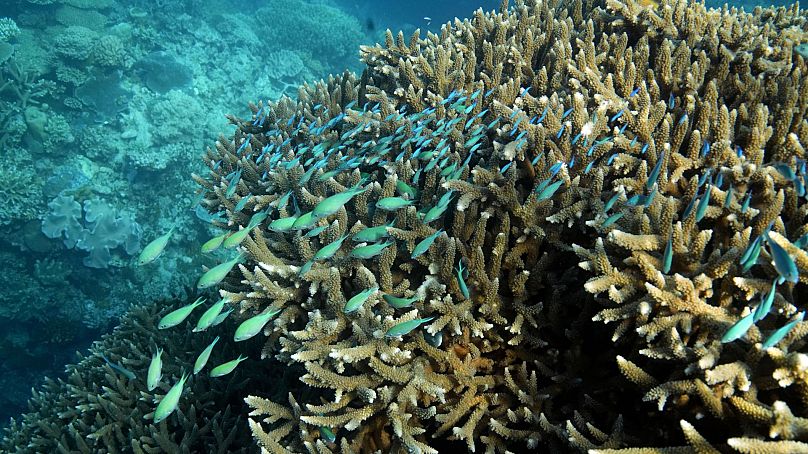The Great Barrier Reef accounts for around 10 per cent of the world’s coral reef ecosystems. But this massive network is under threat.
Marine biologists have urged the world not to give up on Australia’s Great Barrier Reef.
The plea comes days after a joint report from the UNESCO World Heritage Centre and International Union for Conservation of Nature recommended that the reef “be inscribed on the List of World Heritage in Danger”.
Stretching 2,253 kilometres along the coast of northeast Australia, the underwater jungle is one of the great wonders of the natural world.
But this ecosystem is under threat from coral bleaching and invasive species.
The UNESCO report is welcome, says Katie Chartrand, a marine biologist at James Cook University. But she is concerned it could jeopardise investment into projects to save the reef.
"It is welcome in many ways because it's what we all know," she says..
"[Yet] we also don't want to lose the help that we need from the global community.”
They want to showcase that the reef is still vibrant, very much alive and doing well, Chartrand adds.
“But it's hard to, I think, come to terms with the complexity and the nuanced story of what the reef is and what its trajectory is going to be."
What does the UNESCO report into the Great Barrier Reef say?
Officials from the UN cultural agency and the International Union for Conservation of Nature released a report on Monday warning that without “ambitious, rapid and sustained” climate action, the world’s largest coral reef is in peril.
The IUCN report recommends that Australia's federal government and Queensland's state authorities adopt more ambitious emission reduction targets. It says they should be in line with international efforts to limit future warming to 1.5 degrees Celsius.
The text is damning about recent efforts to stop mass bleaching and prevent pollution from contaminating the reef's natural waters, saying they have not been fast nor effective enough.
Uncurbed emissions lead to increased water acidity, which can be toxic.
More money needs to be found to increase the water quality and stop the site's decline, the report concludes.
But Australia’s environment officials have announced that they will lobby against UNESCO adding the Great Barrier Reef to a list of endangered World Heritage sites.
They argue the criticisms of inaction on climate change are outdated. The current government was elected to office in May this year, unseating the conservative incumbents who had been in power since 2013.
Is the In Danger designation a good or bad thing?
According to Chartrand, the recognition of risk is welcome because the reef’s struggle is being highlighted internationally.
On the other hand, it could threaten funding to save the reef.
"The fact that this could hurt that perception of the state of the reef, I think that's a big concern for many,” she says.
Chartrand adds that grassroots efforts encouraging communities to get behind climate initiatives and pushes for government to take action are much easier if “people feel like there’s something to fight for”.
“If people are assuming the reef is dead or threatened because it is already on the brink, I think it's going to make that a bigger challenge for us to get the backing that we need to ensure we have a reef in the future," she says.
Feedback from Australian officials, both at the federal and state level, will also be reviewed before UNESCO makes any official proposal to the World Heritage committee.
Why is the Great Barrier Reef under threat?
Underwater heatwaves and cyclones - driven in part by runaway greenhouse gas emissions - have devastated some of the 3,000 coral reefs that make up the Great Barrier Reef.
Pollution fouls its waters, and outbreaks of crown of thorns starfish have also ravaged this delicate ecosystem.
Heat waves in recent years have driven corals to expel countless tiny organisms that power the reefs through photosynthesis, causing branches to lose their colour or “bleach.”
Without these algae, corals don’t grow, can become brittle, and provide less food and shelter for the nearly 9,000 reef-dependent species.
Powerful cyclones in the last decade have also smashed kilometres of corals.
Each of these was a historic catastrophe in its own right, but without time to recover between events, the reef can't regrow.
The Great Barrier Reef accounts for around 10 per cent of the world’s coral reef ecosystems. The network of more than 2,500 reefs covers 348,000 square kilometres.












